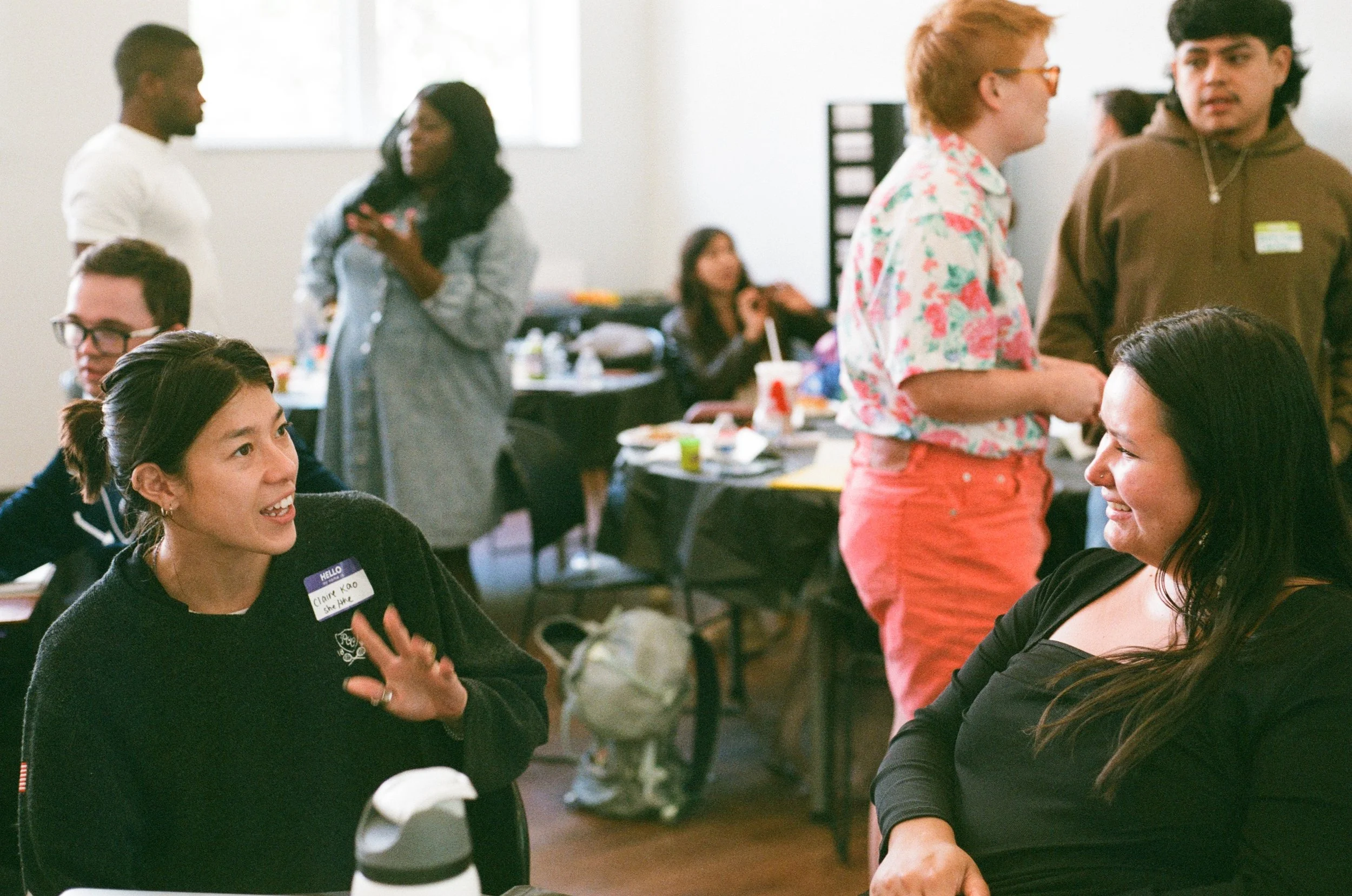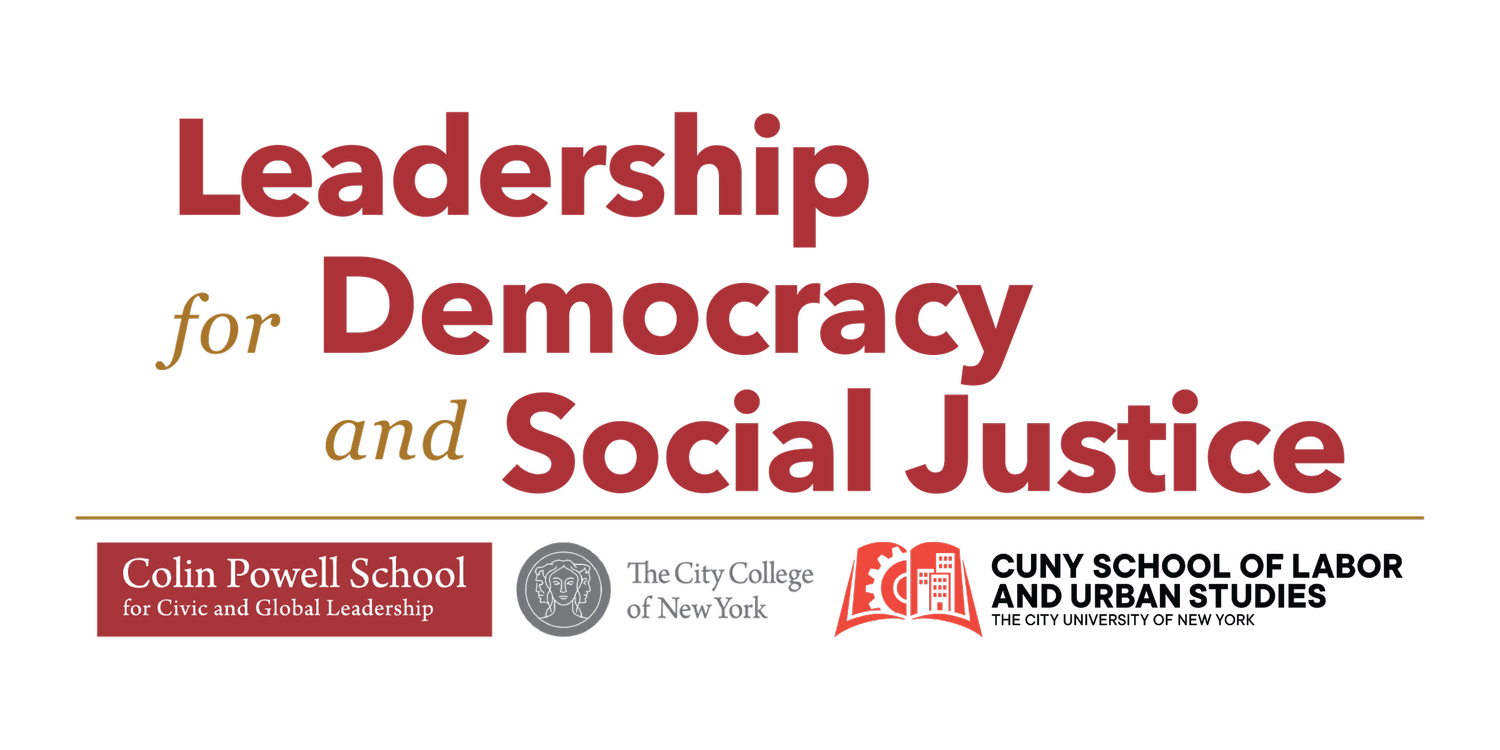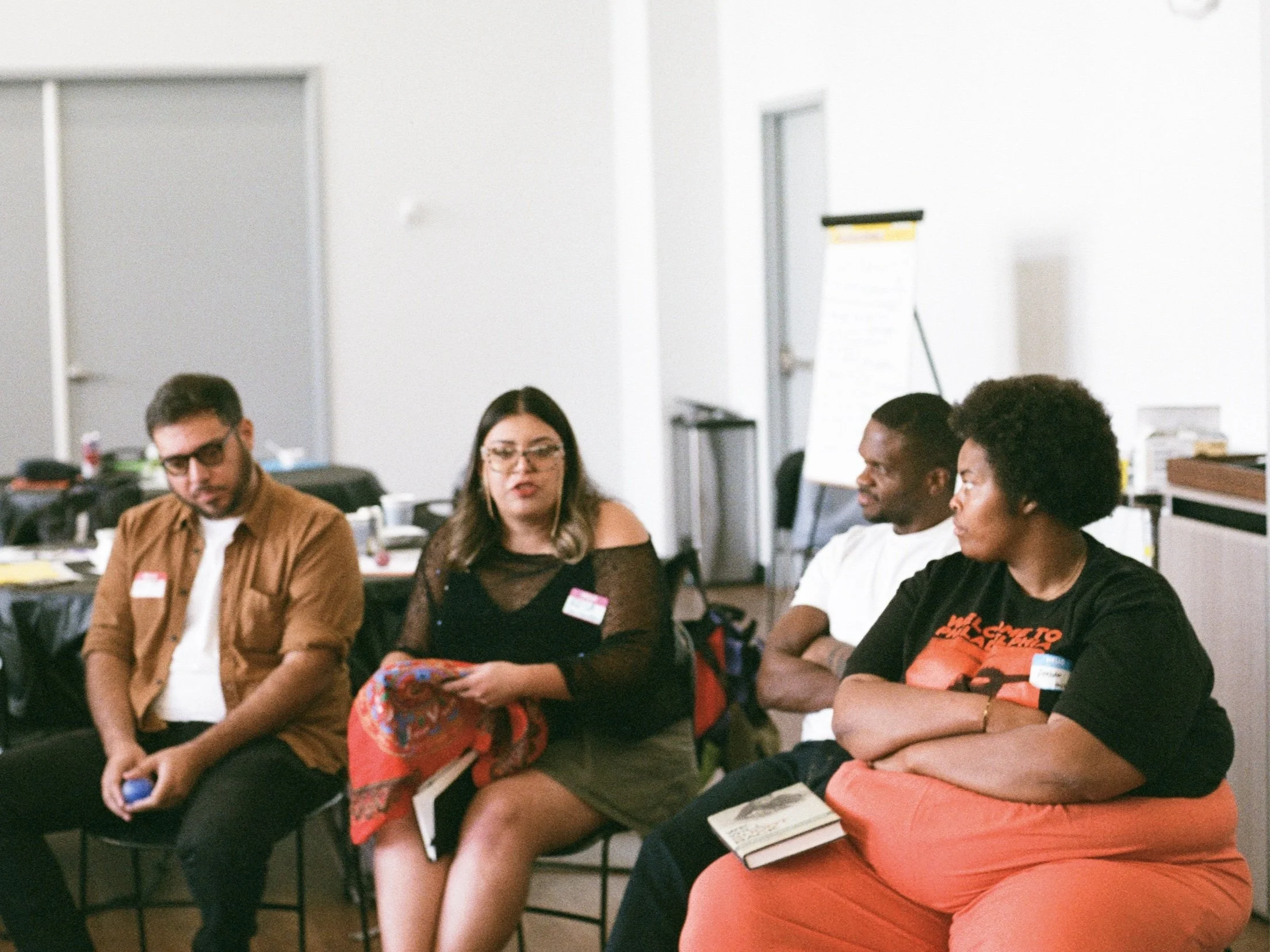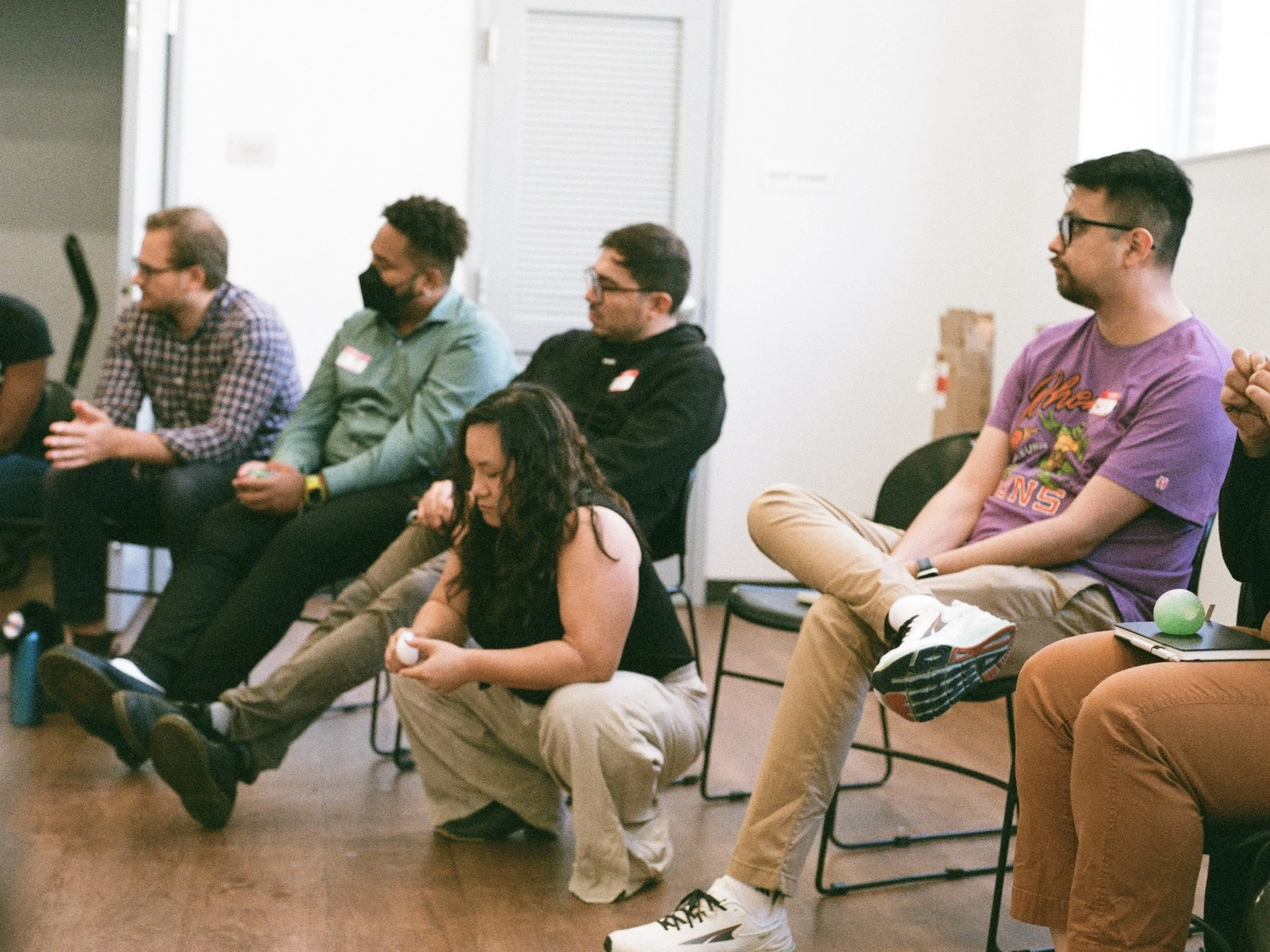
Emerging Leader Fellowship 2024 Application
Apply for the Fall 2024 Emerging Leaders Fellowship!
Leadership for Democracy and Social Justice (LDSJ) is pleased to launch the Fall 2024 Emerging Leaders Fellowship application cycle. Apply here. Applicants who apply by May 5, 2024 at 11:59 ET will receive priority. The final deadline is May 19, 2024 by 11:59pm ET.
What is the Emerging Leader Fellowship?
The challenges of our times – from racial justice to climate change, economic inequality to health equity, gender justice to LGBTQ+ rights – can only be met by strong, diverse, grounded, and revolutionary leaders who are capable of developing imaginative, innovative, creative, and scalable solutions to achieve social justice.
The Emerging Leaders Fellowship is a semester-long program designed for organizers building power in community organizations, labor unions, or advocacy groups. It begins in August 2024 and concludes in December 2024.
This program serves organizers in their first few (1-3) years of managing staff, a coalition, or a campaign, or experienced organizers that have not received substantive formal training. This fellowship is a unique investment: fellows will gain theoretical grounding and practical experience to help deepen their understanding of their social justice work and become more effective agents of change.
The fellowship includes three mandatory components:
A semester-long academic course on the history and theories of past U.S. social movements that meets virtually each week
Two weeklong, in-person retreats focused on power and strategy, management and leadership philosophies, and personal sustainability
A suite of workshops, 1-1 coaching, and mentorship from our career services team
Where do I apply, and by when?
Complete this application. Applicants who apply by May 5, 2024 at 11:59 ET will receive priority. The final deadline is May 19, 2024 by 11:59pm ET.
What does this fellowship include?
-
Fellows will enroll in “Social Movements,” an academic taught virtually by faculty at the CUNY School of Labor and Urban Studies. The semester begins the week of August 28, 2024 and ends December 21, 2024. LDSJ pays all registration and tuition costs for fellows. The course will take place on Mondays from 6:15-8:45 ET. If you are interested in reviewing the Spring 2024 syllabus, please email Bianca.
-
All fellows are required to attend two in-person week-long retreats led by movement leaders with at least a decade of experience. Retreats build community and strengthen fellows’ power analysis and strategy skills.
The retreat curriculum will explore:
Fellow’s purpose and commitment to movement work
Tools to make their leadership more sustainable
Leadership philosophies rooted in people’s power and facilitate other people’s growth
Assessing movement power to define or refine organizational or coalition goals
Leveraging political moments and innovation towards long term agendas
Building authentic relationships to organize across difference
Fellows arrive to retreats on Sunday, programming runs through Thursday evening, and fellows depart on Friday. LDSJ will cover the costs of lodging, travel, and most meals, and will share the retreat locations with fellows accepted into the program.
The first retreat will be Sunday Oct. 6 to Friday OCt. 11. *Friday Oct. 11 is Yom Kippur. LDSJ will accommodate a Thursday evening departure for those observing the holiday.
The second retreat is Sunday Dec. 8 to Friday Dec. 13.
-
Fellows will have access to individualized career coaching, mentorship, and workshops to explore ways to build a strong, sustainable movement career. In addition to individual career coaching, fellows will practice and receive peer coaching to build a supportive network of peers, work through real-time issues, practice mutual accountability and encouragement, and sharpen key leadership and communication skills.
Who is eligible?
Applicants must:
Be over the age of 18
Be based anywhere in the United States (including territories)
Have a minimum of 1 year of management experience
Want to build community around shared values and learn from their peers and movement leaders
Commit to the academic course, two in-person retreats, and career services workshops
Be able to secure approval and support from their organization to participate in the fellowship
What are we looking for in candidates? Who is an ideal Emerging Leader Fellow?
We strongly encourage applicants from historically marginalized backgrounds including but not limited to BIPOC, LGBTQ+, Women & gender queer people, Working class, Immigrants, etc.
This program serves organizers building power in unions, community organizations, and advocacy organizations. We are specifically looking for people with a few (1-3) years of experience managing staff, a coalition, or a campaign, or experienced organizers that have not received substantive formal training. They may be in roles such as but not limited to:
Organizer, lead or senior organizer, or organizing manager
Campaign coordinator, director
Coalition organizer, coordinator, or manager
Ideal candidates:
Are actively employed
Are developing goals related to their movement work
Are either poised to take on their first management roles, or are in the early years of managing fellow staff or coalitions
Want to improve their power analysis and strategy skills
Want to build community and learn from their peers and instructors
Are looking for or trying to build a political home
“This fellowship offers communal learning and hands-on practices with real-time feedback and reflection… I was able to work through many limiting beliefs, and effortlessly connect with other fellows.”
“This fellowship is an incredible experience to grow your skills as a leader, connect to other young organizers, and learn about the history of social movements. I am so glad I did this program and wish that every organizer could do it.”
Frequently Asked Questions (FAQs)
-
Read about current Emerging Leader fellows here. Past Emerging leaders have said this fellowship:
Provided them with theoretical and historical grounding in social movements
Connected them to a community of support and learning
Gave them the space to questions, explore and strengthen their approach to organizing and their values
Provided the language they needed to express what they already knew they were good at, and guided direction for how to build that out and apply it
Centered them in both the fact that they want to remain in movement and the ways they want to show up in movement
Helped them define their role within movement work
Reinforced that through community they can transform themselves and society
Encouraged them to practice leadership skills in real time
Stressed the importance of strategy, delegation, and cross issue connections
-
LDSJ will notify applicants selected to interview via email by the end of May 2024. Applicants will interview via Zoom in June 2024. Applicants selected for the Fall 2024 cohort will be notified via email by the end of June 2024.
-
Applicants do not have to pay to apply or participate in the fellowship. Their employers or host organizations will be asked to make a contribution on a sliding scale. Contributions are suggested – not mandatory – and do not carry weight in the application or interview process. We have robust scholarships available to all applicants.
Organizations with an annual budget of $5+ million = suggested amount of $750 per participant
Organizations with an annual budget between $2-5 million = suggested amount of $550 per participant
Organizations with an annual budget less than a $2 million = suggested amount of $350 per participant
-
LDSJ’s approach to leadership development involves “hard skills”' training along with worldview, history, critical thinking, and reflective practice about the world we want to build and how we get there. Our programs teach disparate lineages and crafts of progressive social change, and encourage constructive, generative dialogue. LDSJ believes that social change work is stronger when its practitioners are deliberately exposed to diverse approaches and traditions that they may be unfamiliar with. This includes different traditions of organizing and social movement work as well as policy and communications. Our analysis and training aims to reflect the intersectionality and interdependency of issues and movements.
-
LDSJ takes feedback from instructors and fellows seriously, and iterates on the program accordingly. For example, LDSJ adjusted the fellowship to be semester-based because a full academic year proved to be too long. We extended the amount of time for in-person retreats to one week to improve the learning experience and increase opportunities for building community. We also have structured retreat programming to account for jet lag and other factors.
-
The academic course requires two and a half hours of class time and ~2-3 hours of reading and assignments outside of class each week. Fellows must be fully present (i.e. no work commitments or meetings) during the in-person retreats. They must also attend all career services workshops.
-
Attendance is mandatory for all components on the fellowships. If accepted, you will receive a memorandum of understanding that outlines what we expect from fellows and grounds for dismissal from the program.
-
All fellows will receive a certificate of completion. If accepted, you will learn about an opportunity to pursue an Advanced Certificate in Organizing and Social Change through the CUNY School of Labor and Urban Studies.






